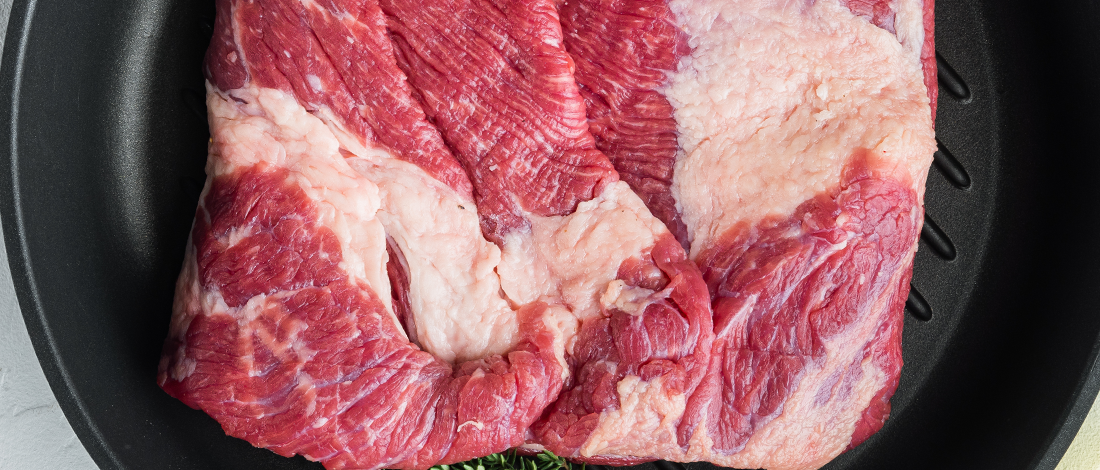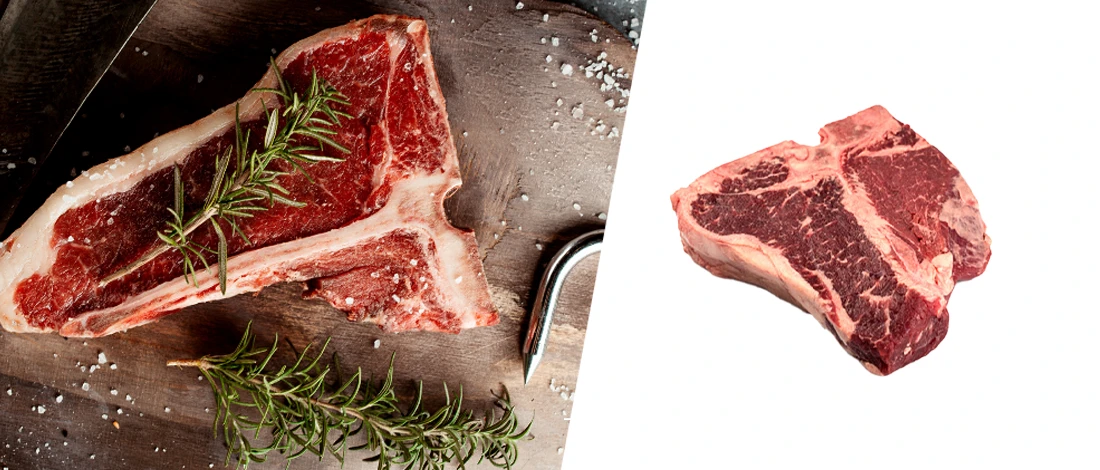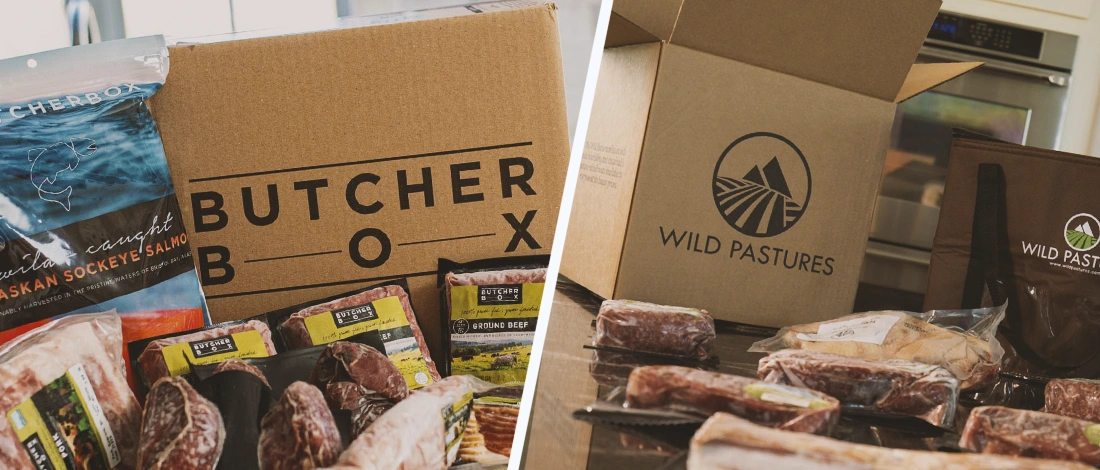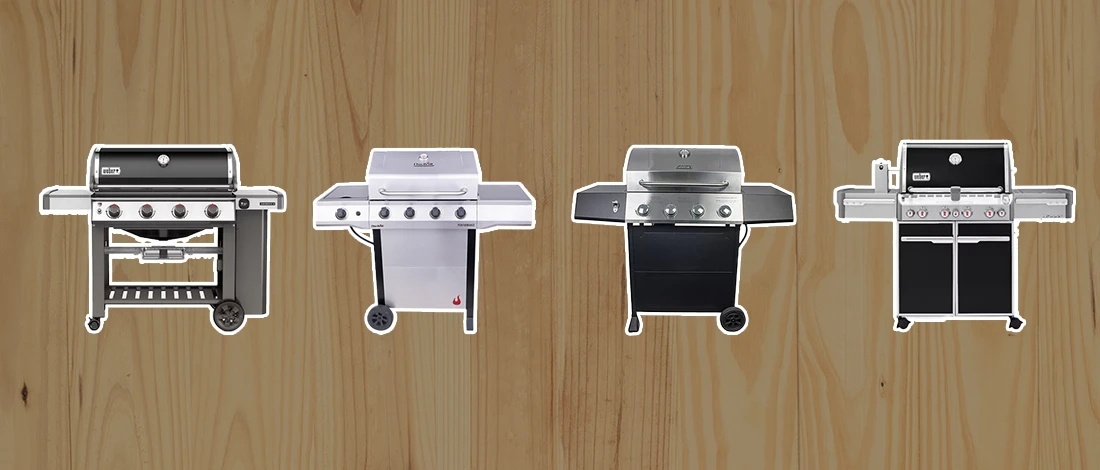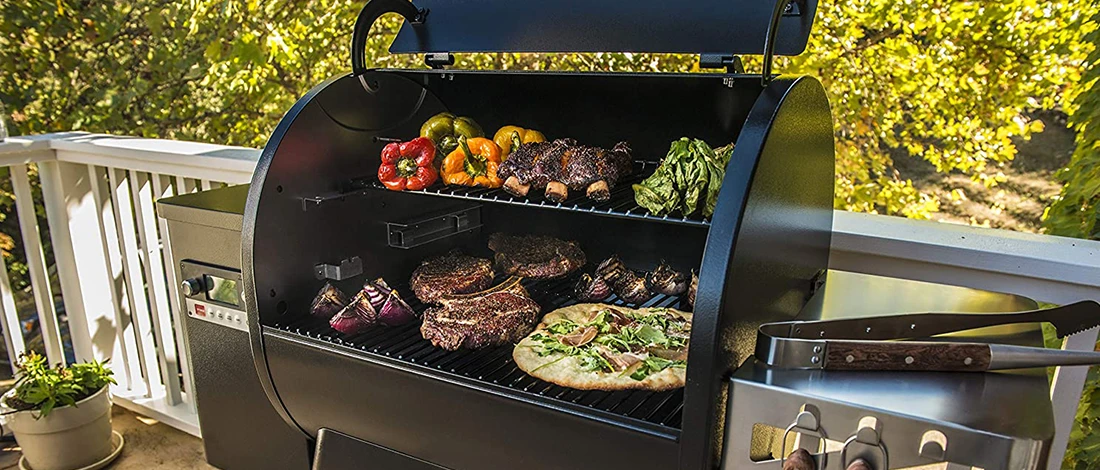During the decade I’ve been on a carnivore diet, I’ve had a chance to try out several models of both pellet and offset smokers.
Today, I’ll explain their similarities and differences and answer everything you want to know about these smokers so you can decide which one is a better choice for you.
Quick Summary
- Offset and pellet smokers differ in fuel source, ease of use, and cost. Offset smokers use wood or charcoal, while pellet smokers use hardwood pellets and electricity.
- Pellet smokers are user-friendly, offer temperature control, and are portable. They are more expensive but provide convenience and fuel efficiency.
- Offset smokers offer a more traditional, hands-on smoking experience and impart a stronger smoke flavor. They are less expensive but require more attention and are less fuel-efficient.
Offset Smoker Vs. Pellet Smoker Comparison
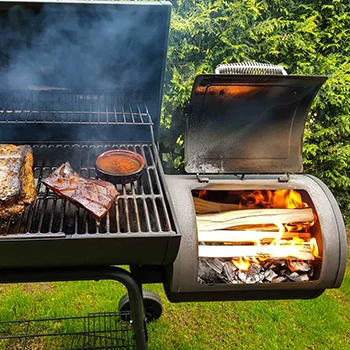
The main difference between a pellet and an offset grill is the fuel source. The offset grills use pure wood chips or charcoal, while pellet grills use hardwood pellets. The pellet smoker also has an electricity option.
Offset smokers also need more attention during the smoking process. On the other hand, one of the biggest pellet smoker pros is that it’s hands-free. There’s no need to constantly supervise it.
Finally, these smokers are different in terms of price. Pellet smokers are more expensive than offset ones.
To help you save space, time, and your wallet, we’ve compiled a list of the best vertical pellet smokers that don’t take up too many square inches of your yard but still provide excellent grilling results even if you’re on a tight budget and don’t have too much expertise.
Let’s look into their characteristics and differences in more detail.
Pellet Smoker Pros and Cons

Here’s what to expect when purchasing a traditional smoker that runs on pellets.
- A pellet grill works by burning wood pellets, but some have an option of electricity, complete with an LCD screen.
- Generally, pellet smokers are tempting from a convenience standpoint because they don’t require your full attention as an offset smoker does.
- Adjusting the smoking conditions and temperature control is as easy as dialing or pressing a button.
- Almost every pellet grill allows phone connectivity to set the alarms on your phone app for both cooking temperature range fluctuations and goal meat temperatures.
- Portability is also another selling point for pellet smokers. While they're not exactly light, they can fold up for easy storage, ideal for BBQers with limited storage space.
- Cleaning the pellet smokers is easy and fast. They don’t create the same mess and grease as the offset does.
- Although they are generally cheaper, they are not fit for moving around and can be susceptible to weather conditions.
Offset Smoker Pros and Cons

An offset grill is popularly known as a pipe smoker, stick smoker, barrel smoker, or horizontal smoker. It's a step-down version of the pellet smoker. Here’s what to expect from offset models.
- The barrel smoker lacks some of the bells and whistles we see on the pellet smokers, such as an electric cooking option, LCD, and connectivity. But don’t mistake its simplicity for non-performance. It has plenty of features that BBQ cooks like.
- It pumps much more smoke flavor into the cooking meat than a pellet grill.
- Most barrel smokers have a large cooking capacity compared to pellet grills of similar size, so they are perfect for family cookouts or friend gatherings.
- The only downside with this smoker is that it’s a bit harder to use. It’s not set and forget as the pellet smoker and won’t allow you to change the heat settings at the touch of a button. But, if you like to stand vigil next to the smoker, you’ll enjoy using an offset smoker more than the pellet one.
- Cost-wise, offset smokers are much more affordable and usually start below market price than similar pellet smokers.
- Overall, an offset smoker is a wonderful choice if you need a flavorful and classic taste of your meat. It's also great for those who like a hands-on approach to their smoking process.
Comparing Their Features Head-to-Head
Let’s see how the main features of offset and pellet smokers compare.
1. Source of Fuel
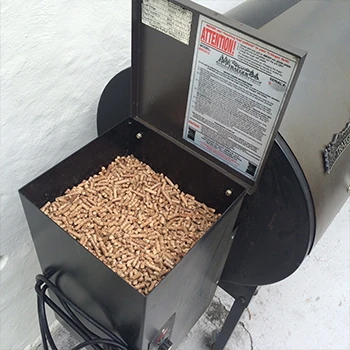
The fuel source is the biggest difference between an offset and a pellet smoker.
An offset smoker uses wood and charcoal, while pellet smokers use electricity and hardwood pellets.
Understand that a smoker's choice of fuel affects your food's overall flavor [1].
Personally, I like an offset smoker because it provides smoky meat like no other smoker I’ve tried, especially if you like preparing briskets.
2. Ease of Smoking
The other difference between an offset and a pellet smoker is the ease of use.
A pellet smoker allows you to “set and forget” and doesn't need constant monitoring of the cooking process.
In my opinion, they're the easy bake oven of smokers, allowing you to smoke your food effortlessly. You can even safely step away from a pellet smoker without worrying about anything going wrong.
That's not the case with traditional smokers. Offset smokers require more effort and are more demanding. You'll probably have more trouble learning how much wood to put or how to control the internal temperature if you're just starting.
However, don’t let the higher learning curve and more demanding use put you off offset smokers. If you enjoy the process of smoking, there’s no beating the offset smoker.
3. Fuel Efficiency
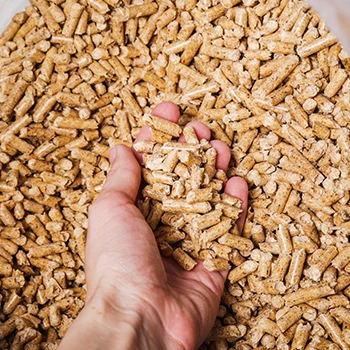
If fuel efficiency is a priority, I would recommend pellet smokers.
A pellet smoker's temperature regulation and convection fan method make the smoker extremely fuel-efficient.
A pellet grill is insulated against heat loss, so it retains heat well and has no unpredictable temperature fluctuations.
On the other hand, an offset smoker takes longer to cook, and consumes more fuel, so it’s a bit less fuel-efficient.
“Most pellet grills have an electric igniter of some sort, and most have a fan that creates convection and moves the smoke evenly around the inside of the cook chamber. As such, they heat quickly, maintain their heat well, and recover temperature rapidly after adding food or opening the lid.”
- Greg Baker, Chef & Writer for Food&Wine
Furthermore, they don’t have a temperature heating consistency as the pellet smokers do, so it’s easy to find temperature disparities in your meat.
This isn’t ideal if you’re after a consistent cook required for pulled pork, for example.
4. Portability
Portability-wise, the pellet grills are the absolute winners.
While generally not as portable as you would imagine, most of them will allow you to load them to the back of your truck. Some are even foldable, so they are a great option for those with limited storage space.
On the other hand, offset smokers are bulky and have plenty of attachments, such as a larger barrel, chimney, small firebox, and cooking chamber. This means they aren’t as portable.
5. Cost

Both pellet and offset smokers come with a relatively high initial cost. But, both versions have several models available, so you can choose between different price points.
The automated regulation and convection fan feature of the pellet smokers drives the starting price up. But the trade-off for the high price is an award-winning meal.
However, offset smokers have a more affordable initial cost but higher upkeep because of the lack of fuel efficiency.
When to Choose a Pellet Smoker?
You should choose a pellet smoker if you need convenience. Pellet smokers are extremely simple to use.
You can set and forget — set the smoker to your preferences, and go about your business as the smoker does the work.
The ease of smoking and operation makes them an inspiring option for beginners.
These smokers automatically maintain optimal cooking conditions, so there is no need to monitor the temperatures or add more wood.
When to Choose an Offset Smoker?
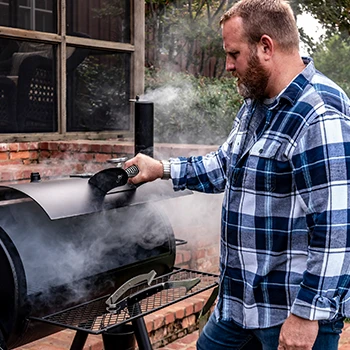
You should choose an offset firebox smoker if you enjoy actively participating in the smoking process. The offset smokers require you to be on the lookout to make sure the food is properly smoked.
I'd also recommend an offset smoker if you want to add a stronger smoky flavor to your meat.
In short, I’d recommend an offset smoker to more seasoned BBQing enthusiasts who appreciate a traditional offset smoker and need to perfect a hands-on cooking approach.
But that shouldn’t put off the newbies looking to learn new ways of flavoring their meat.
Read More: Best Offset Smokers
FAQs
Is an Offset Smoker Better Than Pellet Smokers?
No, an offset smoker isn’t better than pellet smokers. Both of these smoke food well. Your purchase decision should be based on your preferences and needs.
Is It Better to Smoke with Pellets or Charcoal Fire?
It’s better to smoke with pellets than a charcoal fire. The choice of fuel determines the flavor of your final product. Generally, wood chips have a more flavorful final product than charcoal.
Do I Need a Pellet Smoker?
You need a pellet smoker if convenience and ease of use are your priority.
Are Offset Smokers the Same as Wood Smokers?
Yes, offset smokers are the same as wood smokers. They use wood chunks for smoking meat and other foods.
Do Pellet Smokers Make Too Much Smoke?
Pellet smokers don’t generally make too much smoke unless you feed them too many wood pellets before you start cooking meat.
References:
- https://www.sciencedirect.com/topics/food-science/food-smoking


